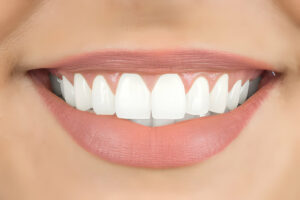How to lose weight after pregnancy: It’s a common goal for many new moms, and you’re not alone if you’re curious about shedding pregnancy weight while navigating this wonderful journey of motherhood! This guide offers practical and effective strategies to help you achieve your weight loss goals healthily and sustainably.
Weight loss after pregnancy is achievable through patience, time, and a balanced approach. Healthy weight loss after pregnancy isn’t about drastic dieting or intense fitness regimes; it’s about making sustainable changes that support both you and your baby, particularly if breastfeeding is part of your journey. New mom weight loss tips often include a mix of safe weight loss after C-section and gentle yet effective exercise for new moms.
In this guide, we offer practical and effective strategies for slimming down after giving birth, focusing on key areas such as:
- Building a solid foundation with nutrition and health essentials.
- Gently incorporate exercise back into your routine.
- Emphasizing overall wellness, including mental health and quality sleep.
By embracing these suggestions, you’ll progress towards your weight loss goals and enhance your overall health and energy. This allows you to enjoy motherhood while caring for your baby and yourself. Regaining energy after pregnancy is just as crucial as shedding the excess pounds, and a healthy postpartum diet paired with regular, manageable exercise can make a difference.
Table of Contents
ToggleSetting the Foundation: Health and Nutrition Basics
Following childbirth, your body demands additional nutrients and energy for healing and nourishing your growing baby. This segment will cover fundamental aspects of postpartum nutrition, including:
- Postpartum nutritional essentials.
- Hydration’s influence on weight management.
- Wise dietary choices.
Understanding Postpartum Nutritional Needs
Your nutritional requirements during the postpartum phase can differ depending on whether you are breastfeeding. The CDC recommends that breastfeeding mothers consume between 2,300 and 2,500 calories per day. In contrast, women who are not breastfeeding should aim for 1,800 to 2,000 calories daily. Remember, these are baseline recommendations; your personal needs may deviate due to factors such as your body size, age, level of physical activity, and breastfeeding frequency.
Besides caloric intake, focusing on consuming the right balance and quality of nutrients is crucial. Vital nutrients for postpartum recovery and lactation include protein, iron, calcium, vitamin D, omega-3 fatty acids, and folate. Incorporating the best diet for weight loss while breastfeeding involves sourcing these essential nutrients from lean meats, eggs, dairy, beans, nuts, seeds, fruits, vegetables, and whole grains to support mother and child.
The Role of Hydration in Postpartum Weight Loss
Remaining well-hydrated is fundamental for overall health and wellness, especially post-delivery. Water is instrumental in digestion, waste elimination, milk production, metabolism, appetite management, and enhancing physical activity—all pivotal for weight management.
So, how much water should you drink? Though the dietary reference intake suggests 125 ounces for men and 91 ounces for women aged 19 to 30 annually, individual needs can vary based on thirst signals, urine color, environmental conditions, and physical activity. Aiming for at least 8 cups (64 ounces) daily is a solid start, increasing intake if breastfeeding is active or in warmer climates. Opt for hydrating options like herbal teas, low-fat milk, or fruit-infused water, steering clear of sugary beverages, alcohol, and caffeine to avoid dehydration or impacting milk production.
Making Smart Food Choices
The quality of your diet is equally important as quantity for postpartum weight loss. A structured healthy meal plan for postpartum weight loss should include nutritious, filling, and enjoyable meals, avoiding high-calorie, nutrient-poor foods. How much weight can I lose safely after pregnancy? The answer depends on individual factors, but by making smart food choices, you set yourself up for success without compromising nourishment.
- Half your plate should be fruits and veggies, a quarter filled with whole grains, and another quarter with lean protein for a balanced and nutrient-rich meal.
- Prefer healthy fats like avocados, nuts, seeds, and olive oil over saturated and trans fats in butter, cheese, and fried items. Healthy fats support heart health and cognitive function.
- Limit added sugars in candy, baked goods, sodas, and juices to evade blood sugar spikes, increased hunger, and potential weight and dental issues.
- Be mindful of portion sizes and eat attentively to prevent overeating and enhance your dining experience.
- Keep healthy snacks like fruits, nuts, yogurt, cheese, or hummus ready to manage hunger and cravings effectively. Avoid skipping meals or experiencing extreme hunger, which can lead to overeating later.
Exercise: Easing Back Into Fitness
Returning to shape after childbirth is a powerful way to boost your mood, build strength, and enhance your overall health. However, you might wonder about the right time and method to reintroduce exercise into your life. In this guide, we’ll tackle frequently asked questions about postpartum exercise, covering:
- The ideal timeframe to resume exercise post-childbirth
- Exercise options that are gentle on the postpartum body
- Tips for setting achievable fitness objectives
When is it Safe to Start Exercising After Giving Birth?
The appropriate time to begin working out post-birth varies based on factors such as your pregnancy and delivery experience, any complications encountered, and your current physical and emotional state. Generally, women who had an uncomplicated pregnancy and vaginal delivery can consider resuming light exercise as early as one week after birth. Meanwhile, those who experienced a cesarean section, diastasis recti, or significant vaginal tearing may need to wait at least six weeks and should seek their doctor’s approval before starting any exercise program.
When you’re ready to start exercising, remember to listen to your body and proceed at a comfortable pace. Avoid overexertion, as it may lead to injuries and hinder your recovery. Begin with easy exercises for new moms to lose weight, such as walking or postpartum-specific fitness programs, gradually increasing intensity as your body adapts. For those wondering how to lose belly fat after pregnancy, consistent core exercises and a healthy diet can offer noticeable results over time.
Exercise Ideas to Lose Weight After Pregnancy
Numerous exercises can be both beneficial and enjoyable for new mothers:
- Walking: An excellent starting point, walking offers a low-impact, flexible option to get moving. You can also include your baby in a stroller or carrier. Begin with short walks, gradually increasing pace and distance as your comfort level improves.
- Pelvic floor exercises: Also referred to as Kegels, these exercises strengthen the pelvic floor muscles, supporting your bladder, uterus, and rectum. These muscles might weaken during pregnancy and childbirth, potentially leading to urinary incontinence and other issues. By contracting and relaxing these muscles regularly, you strengthen them, with the added benefit of being able to perform them discreetly and frequently.
- Core rehabilitation exercises: Focusing on your abdomen, back, and hips, these exercises help to rebuild the muscles weakened or separated by pregnancy and childbirth. Strengthening your core is crucial for posture, balance, and overall stability, which, in turn, can alleviate back pain and other common postpartum discomforts. Begin with simple movements and increase the complexity as your strength returns.
- Strength training: Using resistance to build muscle and bone density, strength training can be an effective way to lose weight, tone muscles, and enhance your metabolism. Begin with lighter weights or resistance bands, engage in exercises like squats, lunges, and push-ups, and slowly increase difficulty to avoid strain.
- Yoga: This mind-body practice involves physical poses, breathing techniques, and meditation to help relax, reduce stress, and improve flexibility, balance, and muscle strength. Opt for gentle yoga styles initially, avoiding poses that might strain your abdomen or pelvic area.
Setting Realistic Fitness Goals
As you embark on your postpartum exercise journey, setting realistic goals is crucial for maintaining motivation and avoiding injury. Here are some strategies for effective goal-setting:
- Health overweight: Focus on exercise to boost your mood and energy rather than solely a tool for weight loss. The benefits of physical activity extend far beyond the scale, contributing to your overall well-being and disease prevention.
- Start small, then expand: Attempting too much too soon can lead to setbacks. Begin with modest goals, gradually enhancing the intensity and duration of your workouts as your endurance improves.
- Flexibility: Adapting to the unpredictable nature of life with a newborn is key. If your original exercise plans fall through, look for alternative, manageable ways to stay active within your new routine.
- Celebrate every achievement: Avoid comparing your progress to others or your pre-pregnancy fitness levels. Instead, celebrate your milestones and acknowledge every step forward in your fitness journey.
Wellness Beyond the Scale: Mental Health and Sleep
Achieving a healthy weight after pregnancy involves more than just diet and exercise. It requires attention to your mental well-being and ensuring you’re getting sufficient sleep. This guide will delve into the significance of mental health and sleep in the weight loss journey and provide strategies to enhance them. Key areas include:
- The critical role of sleep in losing weight.
- Managing postpartum mental health.
The Importance of Sleep for Weight Loss
For new mothers, sleep is crucial for overall health and significantly impacts weight loss post-pregnancy. However, acquiring enough quality sleep can be challenging due to the newborn’s feeding schedule, hormonal shifts, stress, and discomfort. Insufficient sleep can undermine efforts toward healthy weight loss after pregnancy by affecting hormone balance, appetite, and overall ability to function optimally.
- Boosting appetite and cravings: Poor sleep increases ghrelin (the hunger hormone) levels while decreasing leptin (the appetite-suppressing hormone), leading to heightened hunger and cravings for calorie-dense, high-carbohydrate foods.
- Slowing metabolism: Sleep deprivation can hinder insulin function—essential for blood sugar regulation—encouraging fat storage, raising diabetes risk, and potentially leading to heart disease.
- Diminishing energy and motivation: Feeling tired and irritable from lack of sleep makes it more difficult to stay physically active and make health-conscious daily decisions.
To better your sleep quality and duration, consider the following tips:
- Adhere to a consistent sleep schedule, even on weekends, supporting your body’s natural rhythm and improving sleep quality.
- Optimize your sleep environment to be dark, tranquil, cool, and comfortable, utilizing tools like blackout curtains, white noise machines, or aromatherapy for a more restful atmosphere.
- Limit or avoid caffeine, alcohol, and nicotine, especially in the evening, as they can impair sleep quality.
- Avoid heavy or spicy meals close to bedtime to prevent sleep disturbances from indigestion or heartburn.
- Reduce screen time before bed since blue light can disrupt melatonin production and stimulate the brain.
- Opt for short, early-day naps to prevent them from affecting your nighttime sleep.
- Seek support from your partner, family, or friends to share baby care duties, which will allow you to rest better.
Addressing Postpartum Mental Health
Becoming a mother is an incredible experience, but it can also introduce stress and emotional turmoil. Many new mothers experience baby blues—mood swings, crying spells, anxiety, and sleep issues—that generally fade within a few weeks. However, some may suffer from postpartum depression, a more severe condition impacting mood, thoughts, and behavior, which can emerge up to a year post-delivery. Signs include:
- Feelings of sadness, hopelessness, or worthlessness.
- Loss of interest in previously enjoyed activities.
- Sleeping difficulties or excessive sleeping.
- Problems with concentration and decision-making.
- Appetite or weight changes.
- Irritability, restlessness, or anger.
- Feelings of guilt, shame, or thoughts of self-harm.
- Difficulty bonding with the baby or withdrawing from social contacts.
If these symptoms persist over two weeks, seek professional assistance. Postpartum depression is a treatable condition, and early treatment can significantly improve your well-being. Treatment options include therapy, medication, and support groups. Besides professional help, improving your mental health at home involves:
- Self-care through balanced nutrition, hydration, sufficient sleep, and regular exercise.
- Practicing relaxation techniques like deep breathing, meditation, or yoga alleviates stress.
- Accepting assistance from those around you for baby care and household tasks.
- Allocating personal time for activities you enjoy to relax and rejuvenate.
- Maintaining connections with your partner, family, friends, and fellow mothers for emotional support and advice.
Conclusion
In this piece, we’ve unveiled some practical and effective strategies for shedding post-pregnancy weight. Our discussion spanned several key areas, including:
- Laying the groundwork with basic health and nutrition principles.
- Gently reintegrating exercise into your routine.
Emphasizing overall wellness, which encompasses mental health and adequate sleep. By adopting these approaches, you’ll find yourself slimming down and enhancing your general health and vitality.
This boost in well-being will allow you to fully embrace your new maternal duties, all while taking excellent care of you and your little one. Shedding the extra pounds gained during pregnancy presents challenges, yet it remains within the realm of possibility. It requires perseverance, patience, and a balanced, sensible approach.
Rushing into extreme diets or fitness regimes could be detrimental to both your and your baby’s health, particularly if you’re nursing. Treating yourself with compassion and patience is crucial, as well as recognizing your body’s extensive transformations. It necessitates a period of recovery and adaptation.
Avoid drawing comparisons to others or your pre-baby physique, as these comparisons can lead to feelings of inadequacy or dissatisfaction.
Celebrate every step forward, regardless of size, and acknowledge your accomplishments. Remember, you’re not treading this path solo. You have the backing of your partner, family, friends, and healthcare providers.
Consider joining a support group, whether online or face-to-face, to bond with other mothers encountering similar hurdles. Embrace your strength and beauty. You’re entitled to health and happiness. You’ve got this, mama!




















